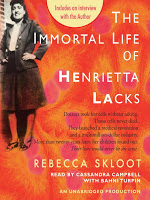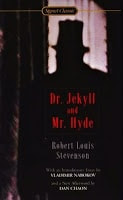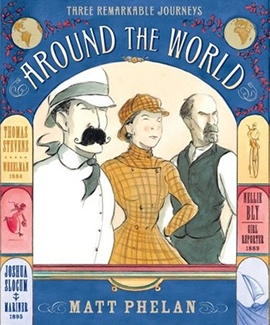I have affiliate relationships with Bookshop.org and Malaprop's Bookstore in beautiful Asheville, NC. I will earn a small commission at no additional cost to you if you purchase merchandise through links on my site. Read more on my affiliate page.
HeLa cells (named after the woman they came from, Henrietta Lacks) have been used for about 60 years by scientists all over the world for all kinds of cellular research. Yet very few scientists could tell you the real name of the woman the cells came from, much less anything about her. Yet somehow, Rebecca Skloot stumbled onto the cells in a high school biology class. The teacher even got Henrietta’s name right. The lesson spawned a years-long fascination with HeLa cells, Henrietta Lacks herself, her family, and the ethical questions that arise from the story. This book is the product of that research.
I would honestly never have picked this book up on my own, but I’ve heard so many good things about the audio version that I decided to give it a try. One can’t listen to fluff alone! All the praise is well-deserved.
There is so much to chew over here. Parts were pretty upsetting, for a lot of different reasons. Henrietta’s children had a very hard life after she passed away, and as I told my husband just a bit about it, he cut me off and said, “Why do you always read books like that? Doesn’t it depress you?” Yes, it does, but it also reminds me how good I have it in comparison. We all need a little attitude adjustment occasionally, and difficult books like this serve that purpose for me. Aside from the family’s personal hardships, it was hard to hear about Henrietta’s death. It was not by any means an easy one. And then, less personal but more relevant to most of us, there were the ethical questions raised by Henrietta’s story. I know times have changed, but I was appalled by the complete disregard for the family. Privacy was barely a concern for anyone, much less informed consent. The family didn’t know anything about Henrietta’s cells in research until decades after her death. Decades. Fifty years later, no one had ever taken the time to explain what was going on with the cells and the family couldn’t tell fact from fiction. A collection of all Henrietta’s cells at that time would fifty million metric tons? There are a lot of clones of Henrietta walking around in London? It all sounded equally crazy and therefore equally plausible.
This is only a side note to the story, but it rang so true with me that I have to mention it. A woman who was present at Henrietta’s partial autopsy mentioned how much Henrietta’s toenail polish bothered her. The woman had kept a clinical distance until then, but those toes made her realize that the body on the table had been a living, breathing person shortly before. I have mentioned in my review of Second Hand Heart that I used to very occasionally be the tiniest of tiny cogs in the organ donation process, doing electrocardiograms on organ donors before any harvesting began. I clearly remember a beautiful fifty-ish female organ donor and how much her perfect manicure bothered me. I never had full detachment when I had to fill that role, but she bothered me a lot. She had no idea what was in store for her when she got that manicure. So I know exactly where the observer was coming from.
The book focused a little more on the family than I expected. My heart broke for them. They seem to have had such hard lives. The research done on their mother’s cells has done so much good for so many people, but they themselves don’t even have the health insurance to be able to afford any of the medications or other advances that she helped bring about. There’s something just not right there.
The very last section was all about the ethics of cell research and where we stand today. I for one was surprised. I may not have the details exactly right, so don’t hold me to any of this, but really, we don’t have any rights to our own tissue. We mostly assume that if, say, our spleen is removed, it’s going to be incinerated, right? There are no guarantees that’s what’s going to happen. There is apparently usually some small print buried in the consent form that lets the hospital or doctor or someone use it however they see fit. There are arguments that if we as individuals retain any rights to our tissue, we can throw up roadblocks to research. But what does happen? A company gets a patent on a gene (like a breast cancer gene) and charges ridiculous amounts of money for other researchers to use it. So much for cooperation for the common good, right? This really happened.
Maybe I was tuned out (I’m not a perfect audio book listener), but I wish there had been a bigger section about all the things HeLa cells have been used for. They’re so common, it’s probably hard to narrow down the list and then write meaningfully about it. Let’s face it, something like “HeLa has been used to manufacture the polio vaccine, develop the atomic bomb, and has been sent into space” would get a little boring. But I wish I had a bigger idea about the research. Like I said, it might have been in there and I was too busy yelling at the drivers around me to notice.
I really liked Cassandra Campbell’s narration. She was very clear and easy to listen to. Maybe I was projecting, but I thought she sounded a little upset when she was reading the worst parts about the abuse Henrietta’s children endured. It made her seem more human instead of just an emotionless voice reading me this book.
You don’t have to be a scientist to understand this book by any means. If you’re interested in any of the topics–the research, the ethics, or the personal story–grab this one. I recommend the audio, but I’m sure this is a fascinating book in any format.
Find author Rebecca Skloot on her website, Twitter, and Facebook.
Read other reviews at Linus’s Blanket, She is Too Fond of Books, and Book Journey.
If you liked The Immortal Life of Henrietta Lacks, you might also like Stiff: The Curious Lives of Human Cadavers by Mary Roach or A Short History of Nearly Everything by Bill Bryson.
Buy The Immortal Life of Henrietta Lacks at

I have an affiliate relationship with Malaprop’s, my local independent bookstore located in beautiful downtown Asheville, NC; and Better World Books. I will receive a small commission at no cost to you if you purchase books through links on my site.






4 Comments
I really was impressed with this book! Sounds like you enjoyed it too!
We are reading this for book club this coming year, I'm very excited.
I'd heard wonderful things about this book and I enjoyed it but I wasn't blown away. I guess I like fiction better than nonfiction. It WAS horrible how Henrietta died, and how her family fared, though. Her family life was very sad. The part about the painted nails reminding you and someone in the book about the cadaver being a real person makes the book sound quite authentic.
This is definitely one that I am interested in reading, and your thoughts only confirmed it!